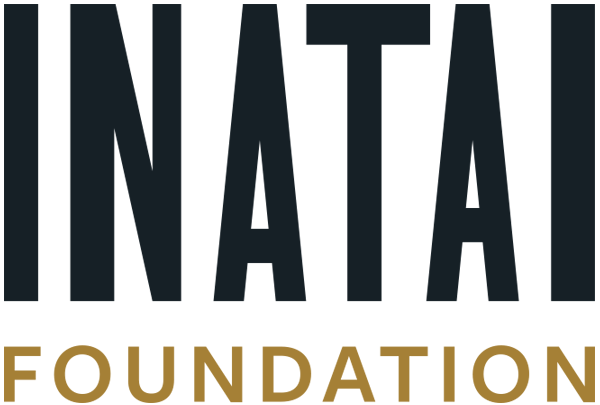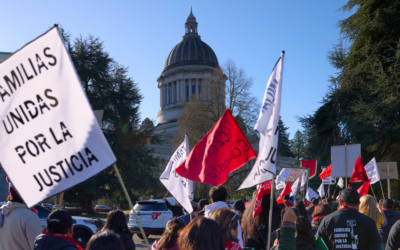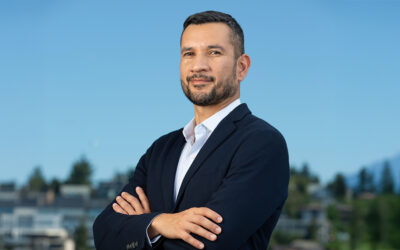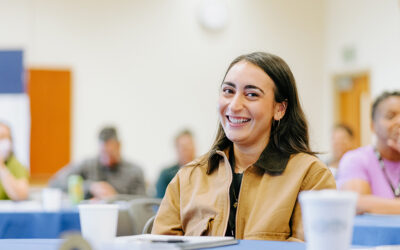Until Feb. 1, 2023, we were Group Health Foundation. This post was written under our former identity. To learn more about our new name, read our announcement here.
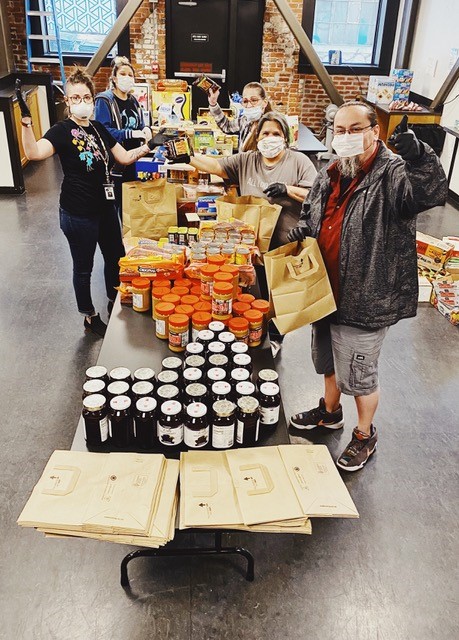
In the early days of the COVID-19 pandemic, and before its magnitude was known, Group Health Foundation set up a $5 million Equitable Response and Recovery Fund and deployed direct and flexible grants to more than 75 community-based, culturally specific, and human service hub organizations in Washington. We funded organizations whose leadership and boards are reflective of and accountable to communities who would be most vulnerable during the pandemic:
- People experiencing social isolation, especially elders with lower incomes and people experiencing homelessness;
- Black, Indigenous, and people of color, especially people of Asian descent, who are experiencing increased anti-Asian racism because of reprehensible reporting and rhetoric about COVID-19;
- People with disabilities and people who are immunosuppressed, who may self-quarantine to prevent infection and who may face greater barriers when accessing services when sick; and
- Communities who need culturally specific or non-English communication to access fact-based resources to learn about and prevent the further spread of COVID-19.
Post-disaster reports from previous emergencies consistently show that community organizations are frequently the last to receive funding from private and public sources, even though they are the among the first to act when it comes to crisis response and recovery. These organizations often stretch resources to provide immediate needs, including childcare when schools close, food and supplies during shelter-in-place orders, and community education as trusted brokers of information. Our aim was to recognize the hard work these organizations are already doing and help defray costs for the added capacity to care for their communities.
Early on, private and public funders requested from us a list of Equitable Response and Recovery Fund grantees to “avoid duplicating efforts.” Even though we understood the impulse to spread resources widely, emphasizing “maximum efficiency” in philanthropic funding at a time of emergency is inequitable. This kind of resource distribution assumes all communities are experiencing the pandemic in the same way. When we did share grantee lists, it was with explicit instruction that this information was not to be used to withhold funding from grantees.
We are thankful for the opportunity to talk through these questions with other funders and are grateful to Equitable Response and Recovery Fund grantees who gave us permission to publish this list. We invite all funders to join us in deepening our commitments to organizations throughout Washington that are led by and for Black, Indigenous, and other people of color, people with disabilities, members of the LGBTQIA+ community, immigrants and refugees, and people who have experienced poverty. We hope that by sharing this list, it will lead to further support to these organizations and to the many leaders and communities throughout Washington who continue to work through this pandemic every day.
As this crisis continues to deepen inequities based on race, ethnicity, wealth, geography, gender, and immigration status, our team is reevaluating the Foundation’s 2020 grantmaking plans so we can continue to support efforts toward a more equitable future for Washington communities.
Equitable Response and Recovery Fund Grantees
| Grantee | Description | Service Area |
|---|---|---|
| Aging in PACE | Community-led model for Asian elders with low incomes who are nursing-home eligible that provides culturally relevant wraparound services to age in place. | Seattle |
| American Indian Health Commission for Washington State | American Indian Health Commission is a tribally-driven nonprofit organization serving 29 federally-recognized tribes and two urban Indian health organizations in Washington State, supporting and providing capacity to address tribal-state health issues. | Statewide |
| Asian Counseling and Referral Service | Asian Counseling and Referral Service works for social justice and offers a broad array of behavioral health programs, human services, and civic engagement activities for Asian Americans, Pacific Islanders, and other communities in King County and beyond. ACRS serves a wide range of Asian American and Pacific Islander communities—immigrants, refugees, and American born—in the Pacific Northwest. | King County |
| Beyond Survival | Sexual assault resource center that provides advocacy and comprehensive services to a diverse population of survivors, along with other efforts, such as prevention education, housing, and cross-system partnerships. | Grays Harbor County |
| Byrd Barr Place | Culturally specific, Black organization serving families and community in Seattle’s Central District. | Seattle |
| Casa Latina | Culturally specific, Latino-serving workers center and job training site. | Seattle, South King County |
| Chelan-Douglas Health District | Health district that is developing Latinx-specific community services with Latinx community leaders. Grassroots models to increase access to care and decrease racial disparities in the region. | North Central Washington |
| Columbia Basin Health Association | An anchor provider of health, community connection, youth, and family services in Central Washington with strong connections throughout their local agricultural community’s working families. | Central Washington |
| Chief Seattle Club | Culturally specific, Native organization providing services to families experiencing housing insecurity in Seattle. | Seattle |
| Central Washington Justice For Our Neighbors | Legal aid, including pro bono services, for immigrants and asylum seekers in several Washington counties. Organize and advocate for pro-immigrant policies. | Central and Eastern Washington, with offices in Ellensburg and Walla Walla |
| Centro Latino | Centro Latino is a community-based nonprofit that cultivates the advancement of Latino and Indigenous communities by providing social services and education programming. | Tacoma |
| Chaplains on the Harbor | Community, legal, and economic advocates for people experiencing poverty, homelessness, violence, incarceration, and addiction in Grays Harbor County. This effort takes an organizing and leadership development approach, and is rooted in the expertise of people who have been incarcerated and experiencing poverty. | Grays Harbor County |
| Columbia County Public Health | Health department that extends across several rural southeast Washington counties. In addition to direct services and programs, the agency convenes a regional partnership of healthcare providers, community organizations, and other partners to improve health outcomes for their communities. | Asotin, Garfield, and Columbia counties |
| Communities in Schools of Benton Franklin Counties | CISBF serves K-12 students and families in 25 schools across Benton and Franklin counties within the Richland, Kennewick, Pasco, and Prosser school districts. | Tri-Cities |
| Communities of Color Coalition | Communities of Color Coalition (C3) is a non-partisan group of citizens who meet on behalf of the people of Snohomish County to discuss, problem solve, and advocate for social justice, cultural, and religious respect and human rights, especially for people of color and other underrepresented groups. | Snohomish County |
| Community to Community | Fiscally-sponsored, Latinx, grassroots base-building effort focused on food sovereignty as a key principle of migrant farmworker organizing. Strong systems-change approach organizing and conducting education programs. | Skagit and Whatcom counties |
| Consejo Counseling and Referral Service | Consejo Counseling and Referral Service is a culturally specific organization serving the Latinx community in Mason, Pierce, and King counties. | Puget Sound region |
| Cowlitz Indian Tribe | Southwest Washington tribe with long-term goals to increase access to healthcare, wellness, housing, and economic stability. | Cowlitz and Clark counties |
| DESC Seattle | Provides integrated services including housing, emergency shelter, crisis intervention, and healthcare to people experiencing homelessness or formerly homeless. | Seattle |
| Disability Rights Washington | Disability-led organization with a mission to advance the dignity, equality, and self-determination of people with disabilities. Advocates for the rights of all people with disabilities statewide using media, legal, and policy presence. | Statewide |
| Domestic Violence Services of Benton and Franklin Counties | Domestic Violence / Sexual Assault (DVSA) services and advocacy for survivors in the Tri-Cities region, including the surrounding rural communities. Women-led organization primarily delivering services to Latinx and people of color. | Tri-Cities and surrounding Benton and Franklin counties |
| El Centro de la Raza | El Centro de la Raza is a culturally specific organization serving all communities, but especially the Latinx community in Seattle and Federal Way. | Seattle, South King County |
| Emergency Food Network of Tacoma and Pierce County | Distribution hub for emergency food access in Tacoma and Pierce County. | Pierce County |
| Eritrean Association in Greater Seattle | Community service organization led by and serving Eritrean and other African refugees and immigrants. Serves as a regional hub to maintain cultural heritage, provide linguistically appropriate programs, and encourage civic engagement through voter education, candidate forums, and participation in the 2020 Census count. | Puget Sound |
| Family Crisis Network | Advocacy agency in Pend Oreille County supporting victims of domestic violence, sexual assault, and other crimes through education, victim services, and social change. Led and staffed by people with lived experiences of trauma and inequities, who provide a wide range of services in rural communities. | Pend Oreille County |
| Farmworkers Center of Mt. Vernon | The Farmworker Center empowers Indigenous Latino farmworkers to identify their own needs, access resources, and use their voices to speak out for their community’s concerns. It is a program of Catholic Community Services. | Mt. Vernon |
| Forks Abuse Program DBA Mariposa House | Multi-racial western Olympic Peninsula DV/SA organization, based in Forks, with strong tribal partnerships, reflective leadership, and advocacy goals. | Clallam and Jefferson counties |
| Grays Harbor Public Health and Social Services | Health department that serves a large rural geographic area on the central coast. In addition to direct services and systems-change efforts, the agency supports a project founded and led by Latina women to expand services and reduce the stigma that prevents people from reaching out for help. | Grays Harbor County |
| Hoh Indian Tribe | Tribal community focused on preparing youth for higher education, protecting cultural sovereignty, and workforce issues on the west coast of Washington State. | Hoh Reservation and western Olympic Peninsula |
| Ingersoll Gender Center | Multi-racial organization providing culturally competent wrapround services for transgender and gender diverse people in Washington. In addition to its education and community services, Ingersoll is a powerful advocacy force. | Statewide |
| International Community Health Services | Asian and Pacific Islander-led community clinic that provides culturally and linguistically appropriate health services to improve the wellness of King County’s diverse people and communities. | King County |
| Kalispel Indian Community of the Kalispel Reservation | The Camas Center Clinic embodies the Kalispel Tribe’s commitment to the health and well-being of the people of Pend Oreille County. A family health center that provides comprehensive health care to everyone, both tribal members and non-tribal community members. Offering confidential care in medical, chiropractic, dental, and behavioral health care. | Spokane and the people of the Kalispel Tribe |
| Kin On Health Care Center | Community-led healthcare organization that honors, supports, and advocates for Asian elders and families in the Puget Sound region by offering culturally and linguistically appropriate health, social, and educational services. | Puget Sound |
| Kitsap Immigrant Assistance Center | Immigrant-serving organization focused on the well-being and empowerment of immigrants through education, direct services, advocacy, referrals, and collaborations. | Kitsap, Mason, Jefferson, and Clallam counties |
| Korean Women’s Association | Provides multi-cultural, multi-lingual human services in 11 Western Washington counties to serve diverse communities through education, socialization, advocacy, and support. | Western Washington |
| La Casa Hogar | Latinx-led, education-based organization partnering with families in South Central Washington. Grounded in community, celebration, and a collective vision to thrive. | Yakima, Benton, Franklin, and Kittitas counties |
| Lake Roosevelt Community Health Centers | Tribally owned and operated rural health clinics in southern half of Ferry County that primarily serve the tribal community, but that are also open to the non-Native surrounding community. Clinics served 2,032 tribal and 689 non-tribal folks in 2019 with medical, dental, optometry, physical therapy, mental health, and labratory services. | Colville Indian Reservation (Ferry and Okanogan counties) |
| Lhaq’temish Foundation | Multi-faceted Native nonprofit supporting the people of the Lummi Nation. Promotes advocacy, provides social services, and supports community/tribal nonprofit projects and organizations. | Lummi Indian Reservation |
| Lower Columbia Hispanic Council | Latinx community organization focused on the equitable integration of Latinx community members into the broader social and economic fabric of the Lower Columbia community, including counties in both Oregon and Washington. | Pacific County and neighboring communities |
| Makah Indian Tribe | Located at the farthest northwest tip of the continental United States, the Makah Indian Tribe has lived, fished, whaled, and thrived on the Olympic Peninsula for thousands of years. The Sophie Trettevick clinic provides critical support in Neah Bay. | Neah Bay and the Makah Indian Tribe’s aboriginal lands |
| Martin Luther King, Jr. Family Outreach Center | Community-based organization with a mission to improve the quality of life for children, youth, seniors, and families through an array of culturally responsive education and social services in Spokane. | Spokane |
| Mason County HOST | Community-based housing program providing education and wraparound case management for homeless youth—many of whom identify as LGBTQ+—in Mason County. | Mason County |
| NAACP Snohomish County | Black-led organization with a mission to ensure equitable outcomes and the protection of civil rights for people of African descent. Volunteer-driven programs are focused on education, advocacy, and youth development. | Everett |
| Native American Youth and Family Center | Providing services to youth, families, and elders throughout Vancouver and Clark County. NAYA’s roots go back generations as a culturally specific community anchor. | Clark County |
| NATIVE Project | Native-led and Native-focused comprehensive urban Indian clinic in Spokane with a focus on both spiritual and physical well-being. | Spokane |
| Neighborhood House Inc. | Neighborhood House provides services to address the needs of families, with a focus on community members with low incomes, public housing residents, immigrants, and refugees. The organization serves more than 15,000 people annually through early learning, youth education, family and social services, employment and adult education, health, and housing counseling. | Seattle |
| Nuestra Casa | Social justice and support services empowering Latina women through education, citizenship, and literacy programs for immigrants living in Sunnyside and the surrounding areas of the Lower Yakima Valley. Founded and led by Latina women. | Sunnyside and the Lower Yakima Valley |
| Odessa Brown Children’s Clinic | Odessa Brown Children’s Clinic is an enduring community partner with a dedication to promoting quality pediatric care, family advocacy, health collaboration, mentoring, and education in a culturally relevant context centering Black and African American families. | Seattle |
| People First of Washington | Disability-led coalition with 30 chapters throughout Washington that develops priorities and advances its agenda through self-advocacy at local, state, and national levels. | Statewide |
| Pierce County AIDS Foundation | Pierce County Aids Foundation focuses on HIV prevention and providing support for people living with HIV, through personal case management, outreach, and education programs. | South Puget Sound |
| Puyallup Tribe of Indians | The Puyallup Tribe of Indians has been rooted in what is now the Tacoma region for thousands of years. It is one of the most urban tribes in the Northwest, and known for “generous and welcoming behavior to all people” including through its social service, clinic, and health programs. | Tacoma and the aboriginal lands of the Puyallup |
| Quinault Indian Nation | Tribal community on the west coast of Washington with a focus on education and student achievement throughout the community. The tribal clinic provides nutrition, medical, dental, diabetic care, pharmaceutical, social services, and behavioral health for people with low incomes. | Quinault Reservation, including portions of Grays Harbor and Jefferson counties |
| Rainier Valley Corps | Rainier Valley Corps (RVC) trains passionate, emerging leaders to build capacity and creates opportunities for collaboration within these communities. Creating a world where communities of color have the power to fulfill dreams for our communities and working together to change policies and systems. | Seattle, South King County |
| Refugee Women’s Alliance | Refugee Women’s Alliance (ReWA) is an award-winning, nationally recognized nonprofit that provides holistic services to help refugee and immigrant women and families thrive. | Seattle, South King County |
| Salish School of Spokane | Grassroots language immersion school led by Native people in Spokane. Powerfully connecting students and families to one another, to history, and to place. Thoughtful analysis and engaged systems change work. | Spokane metro area including Spokane, Spokane Valley and Airway Heights w/some participation from the broader county and local reservations |
| Sea Mar Community Health Centers | Sea Mar’s network of services includes more than 90 medical, dental, and behavioral health clinics and a wide variety of nutritional, social, and educational services in Washington, specializing in services to Latino families. | Statewide |
| Seattle Indian Health Board | Seattle Indian Health Board is a culturally specific organization serving the urban Indian community in Seattle and King County. | King County |
| Second Harvest Inland Northwest | Fighting hunger, feeding hope: Second Harvest brings community resources together to feed people in need through empowerment, education, and partnerships. | Eastern Washington |
| Shoalwater Bay Indian Tribe | Federally-recognized tribe located in Pacific County on the Washington Coast with a focus on food sovereignty and gathering of traditional foods as a pathway to self-sufficiency and health of tribal members. | Tokeland |
| Since Time Immemorial Fund | McKenzie River Gathering Foundation hosts the Since Time Immemorial Fund, which supports response and recovery efforts at in-lieu and other occupied fishing sites along the Columbia River, among other American Indian and Alaska Native communities. | In lieu and other occupied fishing sites |
| Somali Community Services of Seattle | Somali-led community organization providing a range of services, including case management and referrals, parent education workshops, and social justice/leadership training. Conducts voter registration, census organizing, and direct voter engagement. | South Seattle and South King County |
| Sunrise Outreach Center of Yakima | Yakima organization with powerful and visionary leadership working to alleviate hunger and homelessness and interrupt intergenerational poverty. Primarily serving Latinx and Native people with six food pantries. | Yakima County |
| Suquamish Foundation | Nonprofit arm of the Suquamish Tribe, focused on enhancing the well-being of the community and its members. Short-term goals include building a clinic and hiring community health representatives. | Port Madison Reservation, including a portion of Kitsap County |
| Tacoma Community House | Tacoma Community House offers community-based services for immigrants and refugees, including immigration assistance, citizenship classes, ESL, and employment training for residents in Pierce County. | Tacoma |
| Tacoma Urban League | Black-led organization devoted to empowering African Americans and other disenfranchised groups. Programs are focused on eliminating poverty gaps fueled by social injustice and historically oppressive institutions. Local chapter of the National Urban League. | Tacoma, South Puget Sound |
| The Arc of King County | The Arc of King County serves people with intellectual and developmental disabilities across the lifespan. Programs include family support, adult living services, financial assistance, homelessness prevention, counseling, and self-advocacy opportunities. | Seattle |
| The Support Center | Comprehensive, multi-racial DV/SA organization providing shelter and mobile services over a large geographic area. Focused on equality in relationships and helping people assume power over their own lives. | Okanogan County |
| Ttáwaxt Birth Justice Center | New organization founded and led by Native women who are honoring their ancestors by supporting a healthy birthing community for generations to come. | Yakama tribal community |
| United Indians of All Tribes | Providing educational, cultural, and social services that reconnect Indigenous people in the Puget Sound region to their heritage by strengthening their sense of belonging and significance as Native people. | Puget Sound |
| United Territories Of Pacific Islanders Alliance | Queer, transgender, and gender diverse Pacific Islander organization providing supportive, safe, and sacred spaces for the community it serves. Anchors powerful coalition efforts among the Q/T/POC communities advocating for racial, social, and queer justice. | Puget Sound |
| Urban League of Metropolitan Seattle | Black-led organization serving the Seattle/King County region through advocacy, direct programming, community outreach, and coalition building across five focus areas: housing, education, workforce development, health, and policy. Local chapter of the National Urban League. | Seattle, South King County |
| Washington Community Action Network | Multi-racial organizing, advocacy, and economic justice organization operating throughout King County’s cities and with active efforts in Snohomish and Pierce counties. | Seattle, South King County |
| Washington Low Income Housing Alliance | A statewide coalition of housing providers, social service organizations, local government, and individuals from every part of Washington working together to improve public policy and ensure everyone can live in a safe, healthy, affordable home. | Statewide |
| Yakima Valley Farmworkers Clinic | Yakima Valley Farmworkers Clinic is a growing network of clinics and providers who specialize in culturally specific care that centers Latino, rural, and agricultural worker families. | Statewide |
| YES of Pend Oreille County | Serves homeless and at-risk youth through case management, food, and clothing assistance. Conducts advocacy and leadership development programs for young people, with a special focus on LGBTQ+ young people. | Pend Oreille County |
| YMCA of Snohomish County | The Snohomish YMCA is a people-centered, cause-driven organization focused on three key areas: youth development, healthy living, and social responsibility. | Snohomish County |
